Seventh-grader goes from rejection to triumph with support from Sasone
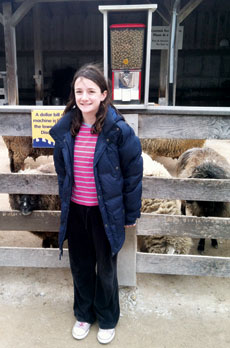 How would you feel if you were excluded time and again by your classmates for behaving in a way you couldn’t control? As a parent, you would become saddened for your child.
How would you feel if you were excluded time and again by your classmates for behaving in a way you couldn’t control? As a parent, you would become saddened for your child.
Word is getting out that, with the help of Sasone, our children are being accepted, included and celebrated. Sasone is a program of CAJE/Jewish Federation that supports children with special needs so they can participate in Jewish educational experiences. This is the story of one of many families who have been helped by Sasone and would like to share their experience.
A Team Effort
The previous day camp Abbie Rieber attended had assured her parents that they could accommodate children with special needs. Then the camp kicked her out. Last summer, Abbie, a seventh-grader at Indian Woods Middle School, had the courage to try again. Only this time she was going to camp at the Jewish Community Center. And this time, with Sasone involved, Abbie was accepted, included and, most importantly, successful in achieving her goals.
“First, before camp started, we had a meeting with parents and paraprofessionals,” said Felicia Holcomb, a Sasone consultant assigned to work with families and staff at the JCC camps. “Parents and paras were able to sit down and talk about their child’s interests and needs, share IEPs (individual education plans), discuss strategies that were effective at home and school, and agree on goals for camp.”
Prior to the start of camp, paras met again with parents and interacted with the children to whom they were assigned, so that by the time camp started the paras were fully equipped to ensure a successful experience for everyone involved.
No Worries
For many children with special needs, camp presents distinct challenges. Unlike school, camp has a less structured environment with indoor and outdoor activities led by senior and junior counselors, most of whom have no experience supervising special needs youngsters.
“Abbie is very smart academically, but has a hard time talking to other people and wants to be the center of attention,” said her mother, Suzy Siegler Rieber. “At school, she goes along with the program, but at camp she needed more breaks and redirection. She came to the JCC camp really worried that, if she was herself, she would be kicked out. They immediately assured her that being kicked out wasn’t an option.”
Every afternoon, Abbie came home with a written summary from her Sasone consultant or para of the day’s activities — what she learned, what was challenging and how it was handled — which Rieber found helpful to spark constructive conversations with her daughter.
“I cannot stress too much the importance of parent involvement,” said Holcomb. “It helps the paras feel confident, gives us accurate information and helps keep goals consistent at both home and camp.”
Supporting Our Kids
The ultimate challenge for Abbie was whether she would be able to manage her emotions in order to participate in the final performance at theater camp, one of the many specialty camps the JCC offers each summer. To everyone’s delight, Abbie did a wonderful job.
“I give a lot of credit to Sasone for helping her with that,” Rieber said.
After JCC camp ended, Abbie spent two weeks in the Tikvah program for adolescents with special needs at Camp Ramah in Colorado.
“I felt like her experience at the JCC gave her the confidence to succeed at sleep-away camp,” said Rieber. “I’ve drunk the Sasone Kool-Aid. I think they do a wonderful service to these kids who just have challenges. And a lot of kids do now. We encourage others to join us in helping to support Sasone.”
Sasone has been generously supported through the years by foundations and many individuals in our community. Still, the number of families that need help continues to grow.
“Camp costs more than everything else we do year-round,” said Sasone’s Holcomb. “Unlike Sunday school and other programs that are a few hours a week, camp is full-time for eight weeks and involves the most children.
“People don’t realize that Sasone relies on donors. This is all made possible by generous contributions from our community, and every little bit makes a big difference.”
Visit www.sasone.org for more information about Sasone and to help other kids like Abbie.



 YOUNG NETANYAHU — A couple of Kansas City camp counselors and siblings, Daniel Siegel and Andrew Siegel, spent the summer with Avner Netanyahu, son of Israeli Prime Minister Benjamin Netanyahu, at Camp Young Judaea Midwest in central Wisconsin. Avner, who is a Tsofim, (Israeli Scout,) was assigned to the camp. Andrew Siegel said he didn’t know the young Netanyahu, or his guards, would be there for the summer until he got there, but said it was a blast spending the summer with him. “He was great. He’s actually quite wise for a 17-year-old,” said Andrew, who is a 20-year-old junior at KU and the son of Lisa and Steve Siegel. Camp Director Noah Gallagher, in a email sent to supporters after the camp session, said when he first heard the young Netanyahu would spend the summer at CYJ Midwest, he worried accommodating such a high-profile staff member would inhibit the camp’s ability to create the sense of family that makes CYJ so special, but that was not the case. In fact, Gallagher believes that sense of family is exactly the reason Avner was assigned to CYJ. We’re told at least four other campers and counselors at CYJ Midwest this summer had Kansas City ties as well.
YOUNG NETANYAHU — A couple of Kansas City camp counselors and siblings, Daniel Siegel and Andrew Siegel, spent the summer with Avner Netanyahu, son of Israeli Prime Minister Benjamin Netanyahu, at Camp Young Judaea Midwest in central Wisconsin. Avner, who is a Tsofim, (Israeli Scout,) was assigned to the camp. Andrew Siegel said he didn’t know the young Netanyahu, or his guards, would be there for the summer until he got there, but said it was a blast spending the summer with him. “He was great. He’s actually quite wise for a 17-year-old,” said Andrew, who is a 20-year-old junior at KU and the son of Lisa and Steve Siegel. Camp Director Noah Gallagher, in a email sent to supporters after the camp session, said when he first heard the young Netanyahu would spend the summer at CYJ Midwest, he worried accommodating such a high-profile staff member would inhibit the camp’s ability to create the sense of family that makes CYJ so special, but that was not the case. In fact, Gallagher believes that sense of family is exactly the reason Avner was assigned to CYJ. We’re told at least four other campers and counselors at CYJ Midwest this summer had Kansas City ties as well. FUN WITH HUMANS — Members of the Jewish Community Center staff, including President & CEO Jacob Schreiber, form a human ‘JCC KC’ that was used for an internal video for the JCC’s first-ever All Employee Meeting, held in late September. It was the first time in the organization’s 98-year history that all full- and part-time staff members were invited to participate. Two hundred individuals attended the informational and motivational gathering.
FUN WITH HUMANS — Members of the Jewish Community Center staff, including President & CEO Jacob Schreiber, form a human ‘JCC KC’ that was used for an internal video for the JCC’s first-ever All Employee Meeting, held in late September. It was the first time in the organization’s 98-year history that all full- and part-time staff members were invited to participate. Two hundred individuals attended the informational and motivational gathering.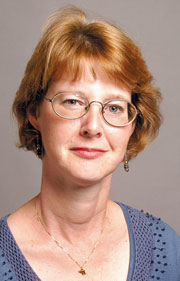 The Reform movement and the Central Conference of American Rabbis is piloting a new High Holiday machzor (prayer book) and Temple Beth Sholom in Topeka is one of about 70 congregations that used the new Kol Nidre service last week. No other congregation in the Kansas City area participated in the pilot.
The Reform movement and the Central Conference of American Rabbis is piloting a new High Holiday machzor (prayer book) and Temple Beth Sholom in Topeka is one of about 70 congregations that used the new Kol Nidre service last week. No other congregation in the Kansas City area participated in the pilot.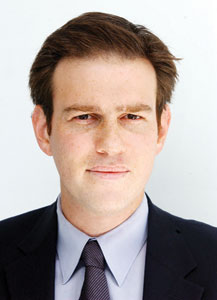 “Arab Spring has now become Islamic Winter,” said Bret Stephens, the foreign affairs columnist of the Wall Street Journal, who will present the closing plenary at the AIPAC Kansas City Israel Action Forum on Oct. 21 at the Temple, Congregation B’nai Jehudah.
“Arab Spring has now become Islamic Winter,” said Bret Stephens, the foreign affairs columnist of the Wall Street Journal, who will present the closing plenary at the AIPAC Kansas City Israel Action Forum on Oct. 21 at the Temple, Congregation B’nai Jehudah. Great films with a Jewish twist will be featured at the 14th annual Kansas City Jewish Film Festival, which kicks off Saturday night, Oct. 13, and continues through Sunday, Oct. 21. All films will be screened at the White Theatre unless otherwise noted. Seven narrative and documentary films were chosen. Guest speakers include KU Hillel’s Rabbi Neal Schuster and Bob Kendrick, president of the Negro Leagues Baseball Museum.
Great films with a Jewish twist will be featured at the 14th annual Kansas City Jewish Film Festival, which kicks off Saturday night, Oct. 13, and continues through Sunday, Oct. 21. All films will be screened at the White Theatre unless otherwise noted. Seven narrative and documentary films were chosen. Guest speakers include KU Hillel’s Rabbi Neal Schuster and Bob Kendrick, president of the Negro Leagues Baseball Museum.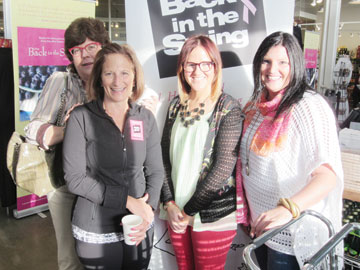
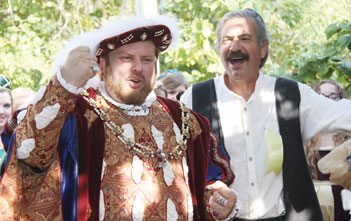
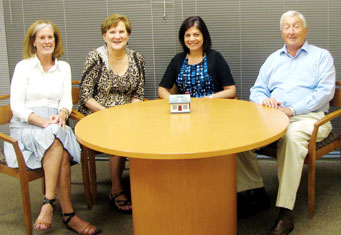 The presidents of the Jewish Community Foundation of Greater Kansas City and the Jewish Heritage Foundation of Greater Kansas City have jointly announced that the Jewish Heritage Foundation has become a supporting organization of the Jewish Community Foundation. In making the decision to reorganize itself as a supporting foundation and create a formal affiliation with the Community Foundation, Heritage Board President Merilyn Berenbom said, “As we move forward, we will have the opportunity to significantly increase our grants and further our mission. The Jewish Community Foundation will help us maximize our potential. That will result in much-needed positive dividends in our community.”
The presidents of the Jewish Community Foundation of Greater Kansas City and the Jewish Heritage Foundation of Greater Kansas City have jointly announced that the Jewish Heritage Foundation has become a supporting organization of the Jewish Community Foundation. In making the decision to reorganize itself as a supporting foundation and create a formal affiliation with the Community Foundation, Heritage Board President Merilyn Berenbom said, “As we move forward, we will have the opportunity to significantly increase our grants and further our mission. The Jewish Community Foundation will help us maximize our potential. That will result in much-needed positive dividends in our community.”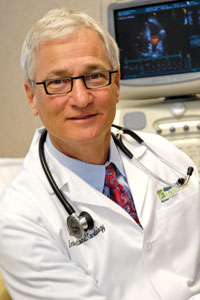 Effective Oct. 1, Dr. Daniel L. Scharf will be joining Saint Luke’s Cardiovascular Consultants, a division of the hospital’s award-winning Mid America Heart Institute, bringing with him his more than three decades of clinical cardiology experience. Many of Dr. Scharf’s more than 1,500 cardiology patients have been anxious to hear where they can continue to see him since his departure from his previous practice. He will primarily see patients at Saint Luke’s South, located at 12330 Metcalf in Overland Park, but will also be seeing patients at Saint Luke’s Plaza location at 4330 Wornall Road.
Effective Oct. 1, Dr. Daniel L. Scharf will be joining Saint Luke’s Cardiovascular Consultants, a division of the hospital’s award-winning Mid America Heart Institute, bringing with him his more than three decades of clinical cardiology experience. Many of Dr. Scharf’s more than 1,500 cardiology patients have been anxious to hear where they can continue to see him since his departure from his previous practice. He will primarily see patients at Saint Luke’s South, located at 12330 Metcalf in Overland Park, but will also be seeing patients at Saint Luke’s Plaza location at 4330 Wornall Road.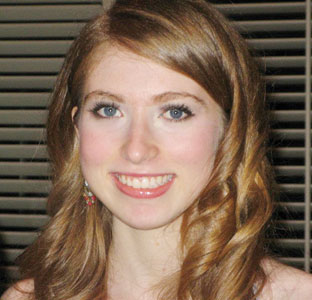 When Jessi Glueck was looking for summer opportunities, she wasn’t sure going to Israel was the best fit for her. After all, the Blue Valley North Senior had already been to Israel with her family 10 times. But it turns out The Bronfman Fellows intensive five-week program of study and travel in Israel, designed to develop future community leaders committed to Jewish unity, was an experience she loved and will never forget.
When Jessi Glueck was looking for summer opportunities, she wasn’t sure going to Israel was the best fit for her. After all, the Blue Valley North Senior had already been to Israel with her family 10 times. But it turns out The Bronfman Fellows intensive five-week program of study and travel in Israel, designed to develop future community leaders committed to Jewish unity, was an experience she loved and will never forget.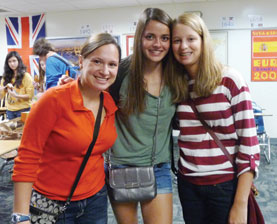 Providing students at public high schools a more in depth and serious study of Judaism is the focus of the Scholars Program developed by the Jewish Student Union. JSU is an organization for students in Kansas City public schools and serves approximately 150 students.
Providing students at public high schools a more in depth and serious study of Judaism is the focus of the Scholars Program developed by the Jewish Student Union. JSU is an organization for students in Kansas City public schools and serves approximately 150 students.